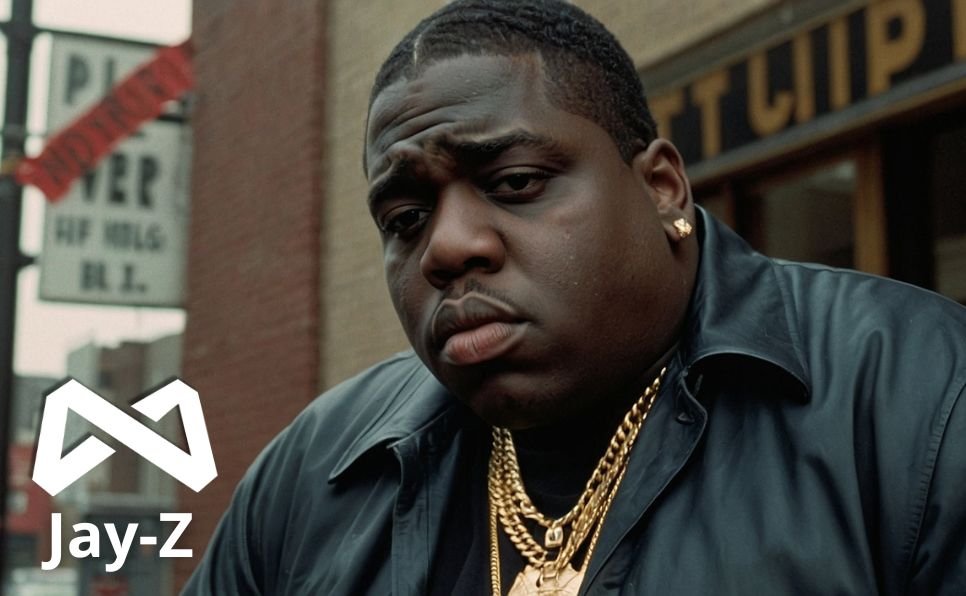Christopher Wallace, better known as The Notorious B.I.G. or Biggie Smalls, is a name synonymous with the golden era of hip-hop. Rising from the tough streets of Brooklyn, New York, to become one of the most celebrated rappers of all time, Biggie’s journey was as complex as it was inspiring. His larger-than-life persona, unmatched lyricism, and storytelling ability transformed him into a legend, but his life was tragically cut short in a drive-by shooting at the age of 24.
This blog delves into the struggles and triumphs that shaped Biggie’s life, offering insights into his rise to fame, the hardships he endured, and his lasting impact on hip-hop culture.
Life in Brooklyn: The Early Years
Born on May 21, 1972, in the Bedford-Stuyvesant neighborhood of Brooklyn, Christopher Wallace grew up in a single-parent household. His mother, Voletta Wallace, worked multiple jobs to support them, but life in the neighborhood exposed Biggie to the harsh realities of poverty and crime.
As a teenager, Biggie fell into the world of drug dealing, a theme that would later permeate his music. Despite his involvement in street life, he had an undeniable talent for rhyming. Friends and neighbors recall how Biggie would freestyle on street corners, captivating everyone with his sharp wit and commanding voice.
Discovering His Talent
At the age of 17, Biggie recorded his first demo tape, which caught the attention of Sean “Puff Daddy” Combs, a rising executive at Uptown Records. Recognizing Biggie’s potential, Puff took him under his wing, and the two began crafting a new sound that would revolutionize hip-hop.
The Making of a Legend: The Rise of Notorious B.I.G.
Ready to Die: A Masterpiece
In 1994, Biggie released his debut album, Ready to Die. The album was an instant success, with hits like “Juicy” and “Big Poppa” showcasing his ability to blend raw street narratives with mainstream appeal.
Themes of Struggle and Aspiration
Ready to Die wasn’t just an album—it was Biggie’s autobiography. Tracks like “Everyday Struggle” and “Things Done Changed” depicted the harsh realities of his upbringing, while “Juicy” celebrated his rise from rags to riches. His storytelling was vivid, his wordplay intricate, and his flow unmatched.
The East Coast vs. West Coast Feud
Biggie’s meteoric rise coincided with the infamous East Coast vs. West Coast rivalry, a feud that would ultimately lead to his tragic demise. His relationship with Tupac Shakur, once a friendship, turned sour amid accusations and media hype. Biggie became the face of East Coast hip-hop, while Tupac represented the West, escalating tensions within the rap community.
Despite the rivalry, Biggie remained focused on his craft, continuing to release music that resonated with fans across the globe.
The Struggles of Fame: Balancing Success and Turmoil
While Biggie’s career flourished, his personal life was fraught with challenges. His tumultuous marriage to singer Faith Evans, legal troubles, and the constant pressure of living under the media spotlight added to his struggles.
The Burden of Representation
As the unofficial spokesman for East Coast rap, Biggie carried the weight of an entire region on his shoulders. He often spoke about the pressure of maintaining his image and staying true to his roots while navigating the music industry’s demands.
Life After Death: A Legacy Cemented
Tragically, Biggie’s life was cut short on March 9, 1997, when he was shot and killed in Los Angeles. His murder remains unsolved, but his legacy lives on through his music.
Life After Death: A Posthumous Triumph
Just weeks after his death, Biggie’s second album, Life After Death, was released. The double album featured hits like “Hypnotize” and “Mo Money Mo Problems,” solidifying his place in hip-hop history. The album’s commercial success and critical acclaim underscored his unparalleled talent and ensured his influence would endure.
The Impact of Notorious B.I.G. on Hip-Hop
1. Revolutionizing Storytelling
Biggie’s ability to paint vivid pictures through his lyrics set a new standard for storytelling in rap. Songs like “Gimme the Loot” and “Warning” showcased his knack for creating cinematic narratives that resonated with listeners.
2. Bridging the Gap Between Street and Mainstream
Biggie’s music transcended the streets of Brooklyn, appealing to a global audience. He struck a balance between gritty street tales and radio-friendly hits, paving the way for future artists to achieve mainstream success without compromising authenticity.
3. Inspiring a Generation
From Jay-Z to Kendrick Lamar, countless rappers cite Biggie as a major influence. His flow, delivery, and lyrical prowess continue to inspire new generations of artists, ensuring his legacy remains alive.
Lessons from Biggie’s Life: Triumph Through Adversity
- Authenticity Matters: Biggie’s success was rooted in his authenticity. He stayed true to his experiences and used his music to share his truth.
- Resilience in the Face of Struggles: Despite the challenges he faced, Biggie never let adversity define him. His journey is a testament to the power of resilience.
- The Importance of Mentorship: Biggie’s relationship with Puff Daddy highlights the importance of having a mentor who believes in your vision.
Conclusion: The Immortal Legacy of Notorious B.I.G.
Notorious B.I.G.’s story is one of struggle, triumph, and unparalleled talent. From his humble beginnings in Brooklyn to his reign as the King of New York, Biggie’s life and music continue to inspire millions.
Although his time on Earth was brief, his impact on hip-hop is everlasting. As we reflect on his journey, we’re reminded of the transformative power of music and the enduring legacy of a true rap legend.
In Biggie’s own words:
“Stay far from timid, only make moves when your heart’s in it, and live the phrase ‘Sky’s the limit.’”


Biggie’s journey from the streets of Brooklyn to hip-hop legend is incredibly inspiring!
Ready to Die is a masterpiece! His storytelling ability is unmatched—every track hits hard!
The East Coast vs. West Coast rivalry added so much drama to hip-hop history, but Biggie always stayed true to himself!
It’s heartbreaking how his life was cut short, but his legacy continues to influence so many artists today!
Biggie’s flow and wordplay set the standard for future generations—he truly revolutionized rap!